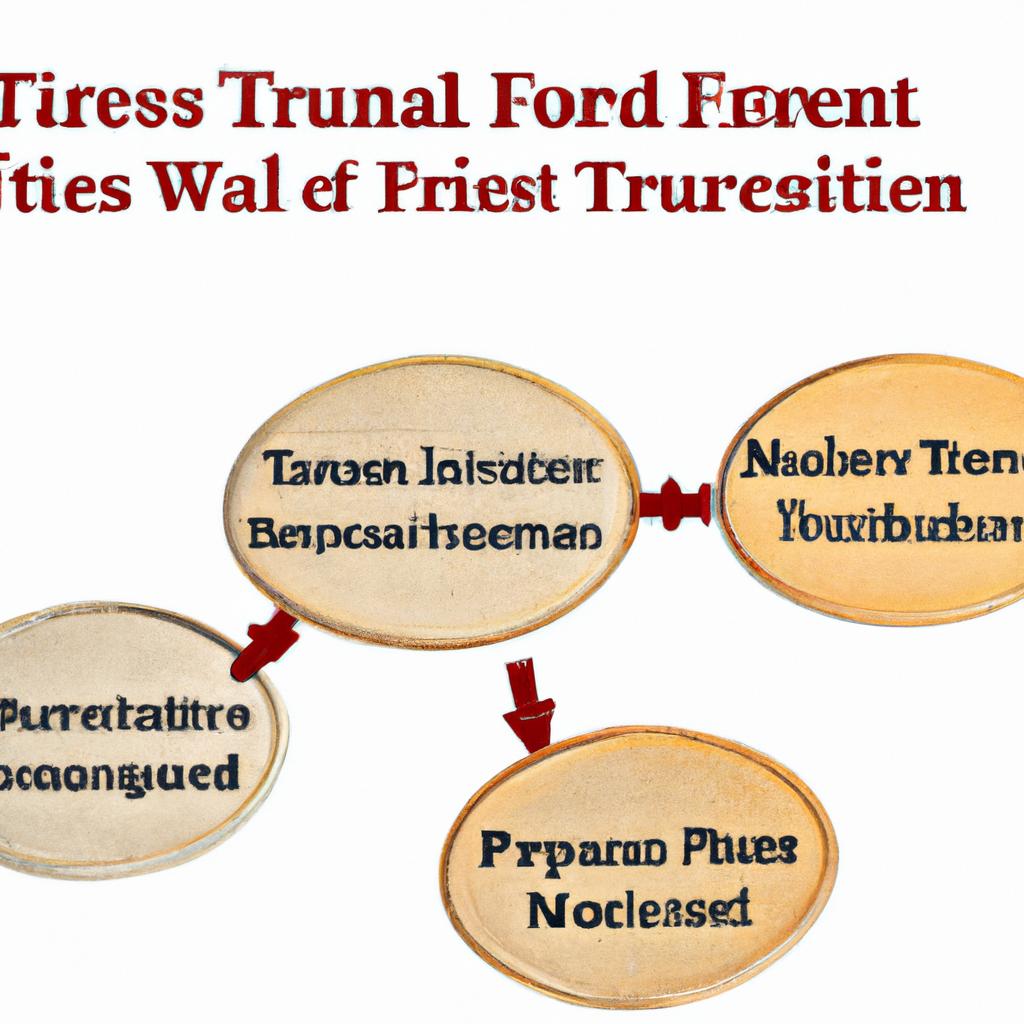In the intricate world of estate planning, trusts play a pivotal role in safeguarding and managing assets for future generations. As experienced lawyers at Morgan Legal Group in New York City, we understand the importance of establishing trust funds to provide for loved ones and protect hard-earned wealth. In this article, we delve into the various types of trust funds available, guiding you through the diverse options for structuring your estate plan with precision and care. Whether you are seeking to create a living trust, charitable trust, or special needs trust, our expertise can help you navigate the complexities of establishing trust funds tailored to your unique financial goals and needs.
Types of Trust Funds for Wealth Preservation
When it comes to preserving wealth for future generations, trust funds are a powerful tool that can help individuals achieve their financial goals. There are several types of trust funds that can be used for wealth preservation, each with its own unique features and benefits.
One common type of trust fund is a revocable living trust, which allows individuals to retain control over their assets during their lifetime while ensuring that they will be distributed according to their wishes after their death. Another popular option is an irrevocable trust, which can provide tax benefits and protection from creditors. Other types of trust funds include charitable trusts, special needs trusts, and spendthrift trusts, each designed to meet specific estate planning needs.

Understanding the Different Structures and Benefits
When it comes to of trust funds, it is important to recognize the various types of trust funds available. One common type is a revocable trust, which allows the grantor to make changes or revoke the trust at any time during their lifetime. This provides flexibility and control over the assets placed in the trust. Another type is an irrevocable trust, where the grantor permanently transfers ownership of the assets to the trust, providing protection from creditors and potential estate taxes.
Additionally, there are special needs trusts designed to provide for individuals with disabilities without affecting their eligibility for government benefits. Charitable trusts allow individuals to provide for their favorite charities while receiving tax benefits. Understanding the different types of trust funds and their unique benefits is essential in creating a comprehensive estate plan that meets your specific needs and goals.

Key Considerations When Setting Up a Trust Fund
When setting up a trust fund, it is essential to consider the various types available to ensure that it aligns with your specific needs and goals. One common type is a revocable trust, which allows you to make changes or revoke the trust at any time during your lifetime. This flexibility can be advantageous for individuals who anticipate changes in their circumstances or beneficiaries.
Another type of trust fund is an irrevocable trust, which cannot be altered or revoked once it is established. While this may limit your control over the assets placed in the trust, it provides additional protection against creditors and estate taxes. Additionally, charitable trusts allow you to support a charitable cause while potentially receiving tax benefits. Understanding the differences between these types of trust funds is crucial in determining the best option for your estate planning needs.
Expert Recommendations for Maximizing Trust Fund Efficiency
When it comes to establishing a trust fund, there are several types to consider. Each type has its own unique features and benefits, so it’s important to choose the right one for your specific needs. Here are some common types of trust funds:
- Revocable Trust: This type of trust can be changed or revoked at any time by the grantor. It is a flexible option that allows for modifications as needed.
- Irrevocable Trust: In contrast to a revocable trust, an irrevocable trust cannot be changed once it is established. This type of trust provides asset protection and tax advantages.
- Special Needs Trust: Designed for individuals with disabilities, a special needs trust helps protect government benefits while providing supplemental care.
| Trust Type | Key Features |
|---|---|
| Revocable Trust | Flexibility, can be modified or revoked |
| Irrevocable Trust | Asset protection, tax advantages |
| Special Needs Trust | Protects government benefits, provides supplemental care |
Q&A
Q: What are the different types of trust funds available?
A: There are various types of trust funds, including revocable trusts, living trusts, irrevocable trusts, charitable trusts, and special needs trusts.
Q: How do revocable trusts differ from irrevocable trusts?
A: Revocable trusts can be altered or cancelled by the person who created it, whereas irrevocable trusts cannot be changed once they are established.
Q: Can you explain what a living trust is?
A: A living trust is created during the grantor’s lifetime and can be used to manage assets and property for the benefit of specific beneficiaries.
Q: What is the purpose of a charitable trust?
A: A charitable trust is created to benefit a specific charity or cause and can provide tax benefits for the grantor.
Q: How does a special needs trust work?
A: A special needs trust is set up to provide for the financial needs of a person with a disability without affecting their eligibility for government benefits.
Q: Are there any other types of trust funds worth mentioning?
A: Other types of trust funds include spendthrift trusts, asset protection trusts, and generation-skipping trusts, each designed to serve different purposes and goals.
In Retrospect
In conclusion, trust funds come in various forms, each designed to serve different purposes and meet specific needs. Whether you are looking to secure your child’s future or support a charitable cause, there is a trust fund option that can help you achieve your goals. By understanding the different types of trust funds available, you can make informed decisions about how best to manage and grow your assets for the benefit of yourself and your loved ones. Trust funds may seem complex, but with the right knowledge and guidance, they can be powerful tools for securing your financial legacy. So, explore your options, seek professional advice, and embark on the journey of creating a secure and prosperous future through trust funds.

